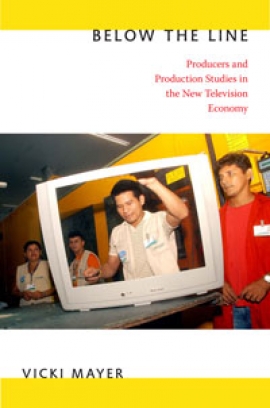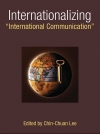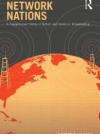
In Below the Line: Producers and Production Studies in the New Television Economy, Vicki Mayer spotlights forms of industrial labor that remain on the margins of more traditional conceptions of legitimate work in the television business. Ultimately, Mayer argues, an exclusive focus on the television producer devalues and disavows the equally significant contributions other industrial roles make to the political economy of television. She focuses her analysis on TV assembly line workers in Manaus, Brazil, soft-core videographers on the streets in New Orleans, reality TV casting personnel, and volunteer cable television regulators.
Mayer’s book makes a significant contribution to the work on labor and professional identity by treating “creativity” and “professionalism” as elastic discourses with meaningful applications outside recognized industry categories. By embedding herself within each of the communities she studies, Mayer charts the unique ways in which these discourses can be refashioned to provide a sense of distinction otherwise reserved for mainstream production cultures.
In this excerpt, Mayer identifies soft-core camera operators as one maligned group of producers who must cultivate a particular sense of “professionalism” to distinguish their work from its associations with amateur videography. Popularly known for supplying footage for video series likeGirls Gone Wild and often stereotyped as voyeurs and creeps, soft-core videographers articulate a set of street-level skills and sense of fraternity as core attributes of their professional work ethic. Such skills include an understanding of the industry, the ability to scan for and identify potential flashers, and an eye for quality shots. Moreover, Mayer suggests, soft-core cameramen develop a production culture and sense of professional identity through a ritual of sharing stories with each other on the street and in bars. It is this continual construction of identity through storytelling that helps camera operators develop pride in their work even as the legitimate TV industry refuses to recognize their value.
Below the Line is a provocative call for production studies scholars to look outside canonized sites of production, examine the myriad ways professional identities get produced and mobilized in relation to television production, and break down “artificial distinctions between the mental and the manual, between skilled labor and organic labor, between above the line and below the line” (176).






